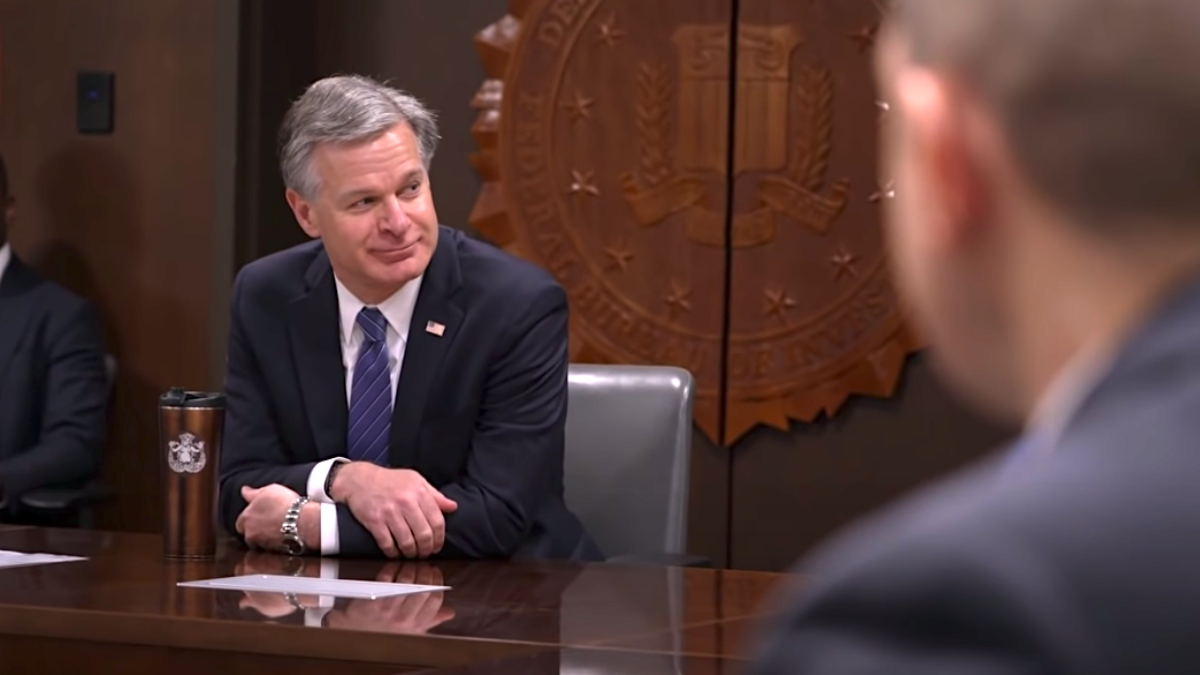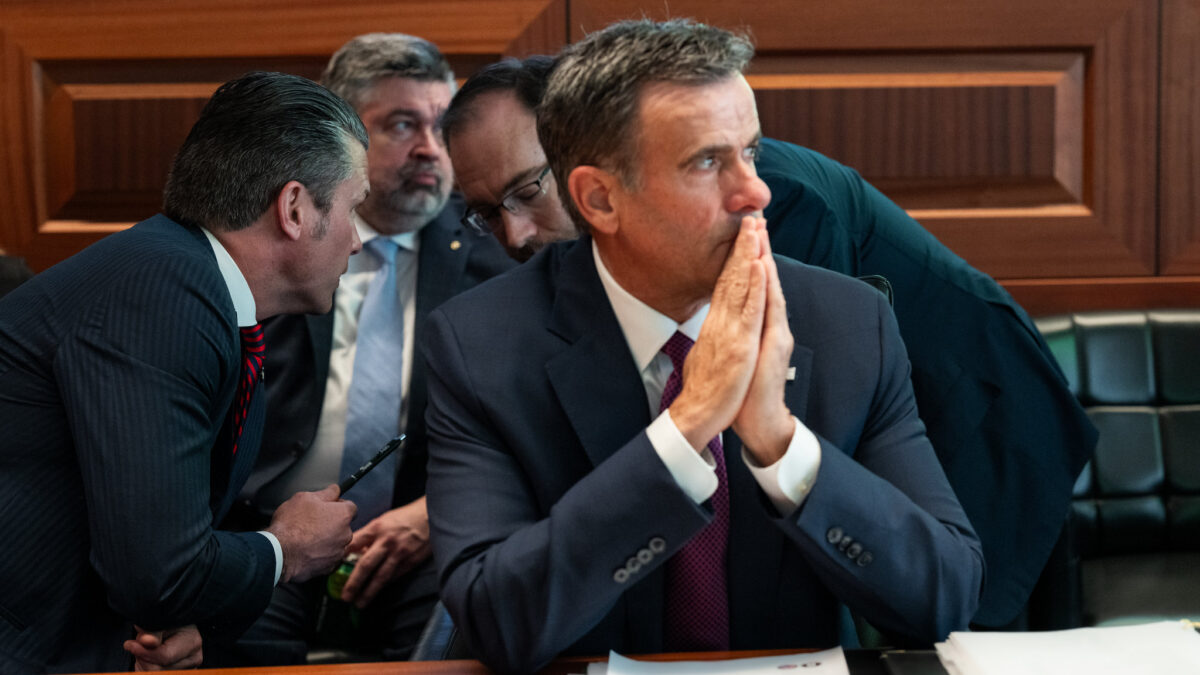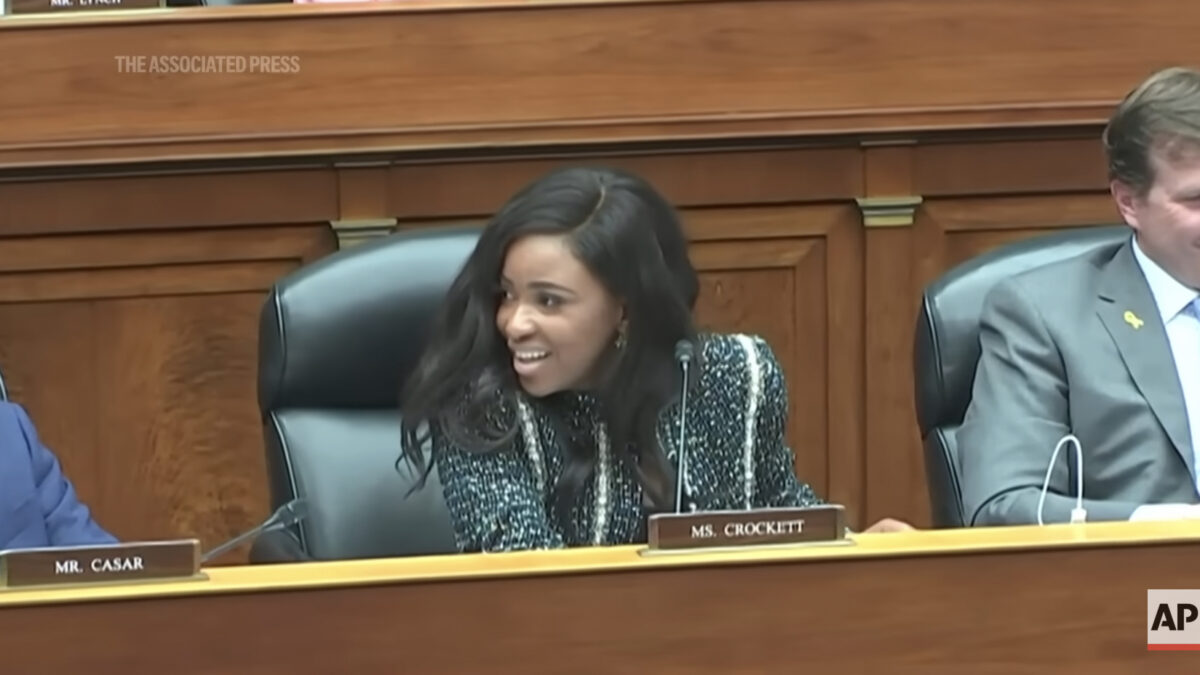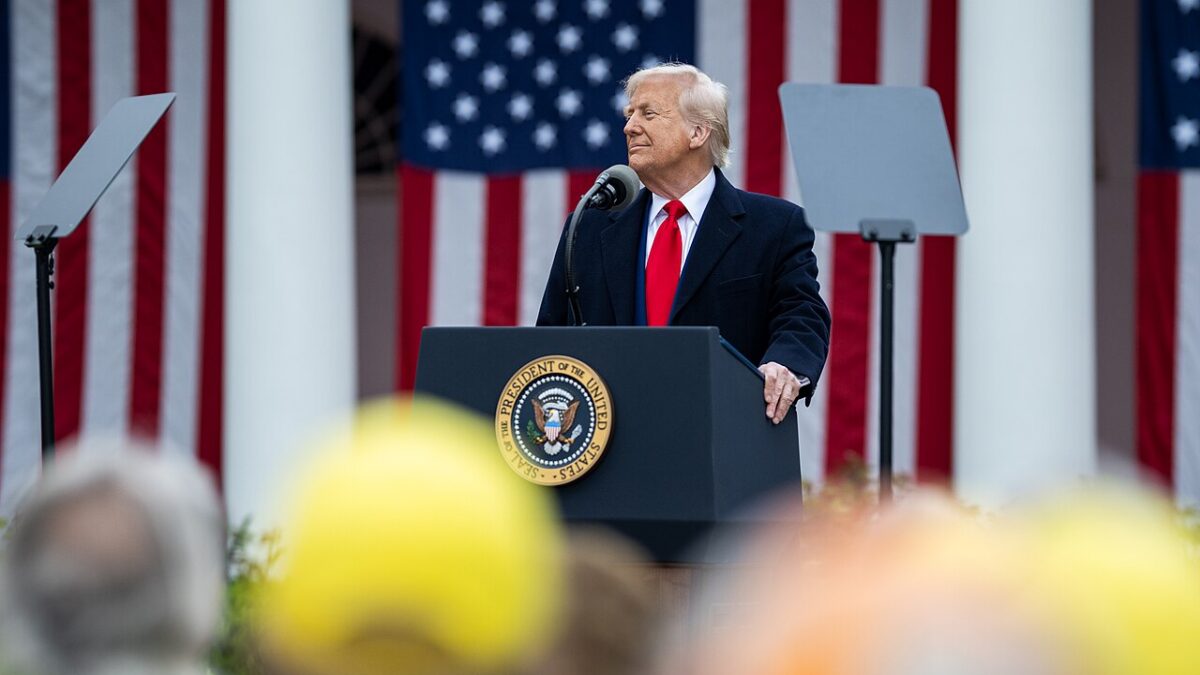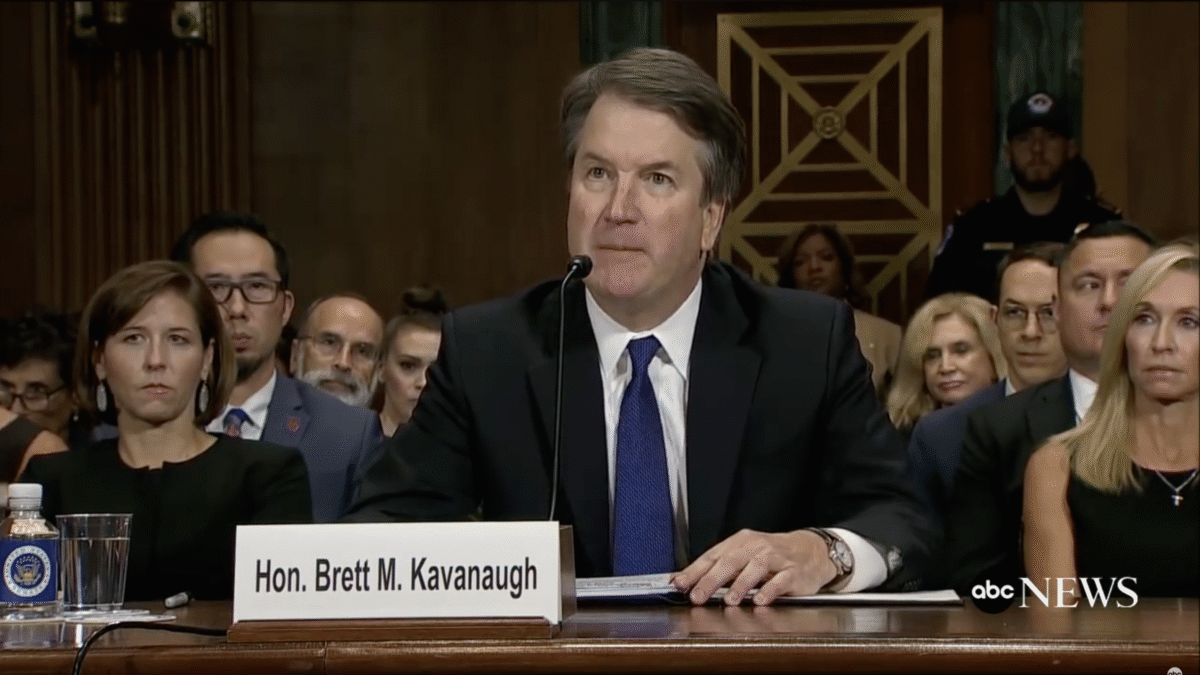FBI Director Christopher Wray’s Thursday statement represents a disgraceful attempt to silence critics by conflating condemnation of the bureau’s conduct with violence and threats against law enforcement. This outrageous tactic will not work, and that Wray resorted to it confirms he no longer deserves to be FBI director.
“Unfounded attacks on the integrity of the FBI erode respect for the rule of law and are a grave disservice to the men and women who sacrifice so much to protect others,” Wray began his short, four-sentence statement, before immediately pivoting to the truism that “violence and threats against law enforcement, including the FBI, are dangerous and should be deeply concerning to all Americans.”
By calling criticism “attacks” and then immediately warning the country of the danger “violence and threats” against the FBI pose, Wray deceitfully framed legitimate speech as violence or, at a minimum, the threat of violence. The object of this framing is obvious: to silence Americans who have finally found their voice following the FBI’s raid of Trump’s private residence at Mar-a-Lago.
In a country founded on first freedoms — foremost of which is free speech — Wray’s statement proves shocking. But worse still is the reality that the FBI already identifies patriotic and historic speech and symbols as suspect of violent extremism, such as when groups profess, “Don’t Tread On Me” on an emblem of the Gadsden flag or challenge with the Gonzales flag, “Come and Take It.”
While Wray’s effort to equate speech and violence proves the most offensive part of his Thursday statement and one that merits universal condemnation, the director’s attempt to sweep away the legitimate criticism of the bureau as “unfounded” deserves derision as well.
There is nothing “unfounded” in the condemnation of the FBI for its handling of the Crossfire Hurricane investigation, and it is because of that widespread misconduct that Americans doubt the legitimacy of the FBI’s decision to search the former president’s home.
Crossfire Hurricane revealed that agents at the highest levels in the bureau held an anti-Trump political bias. The inspector general’s report established that the FBI submitted four FISA applications replete with lies and material omissions, allowing agents to obtain a court order to surveil Carter Page in violation of Page’s constitutional rights. And Americans discovered the FISA court served as no real check on the FBI’s abuse.
The country also learned that the FBI used a backdoor conduit in Bruce Ohr to continue to accept “intel” from Christopher Steele after terminating him as a “confidential human source.” The Mueller report revealed that for all the talk about investigating Russian interference in the election, the FBI ignored the obvious question of whether Steele had been fed Russian disinformation to meddle in our affairs. And the trial of Michael Sussmann revealed how nonchalant the FBI was about being misled.
There is nothing “unfounded” about any of these criticisms, and it is precisely because of their legitimacy — and that they all flowed from a “get-Trump” mentality — that the country now condemns the FBI’s raid on Trump’s home.
Further, even if this time the FBI (and its sources) didn’t lie and the court didn’t rubber stamp the search warrant, the raid still deserves condemnation because of the obvious double-standard.
The FBI never raided Hillary Clinton’s home during the FBI’s investigation of the former secretary of state for mishandling classified documents. Consequently, Clinton had time for her minions to wipe her homebrew server with BleachBit, making it impossible for the FBI to recover some emails.
The FBI also didn’t raid Clinton’s houses to search for the 13 mobile devices it believed she might have used to email her staff. The DOJ instead asked Clinton’s lawyers to provide the Blackberries and other devices to agents. Clinton’s attorneys later told the FBI “they were unable to locate any of these devices.”
The double standard appears also to apply to Hunter Biden, unless the FBI somehow succeeded in quietly searching his residences without anyone’s notice. But even that would contrast with how agents treated Roger Stone, when the media amazingly knew to be handy during the pre-dawn raid and search of the Trump ally’s home. And these are but a few of the many examples of disparate treatment based on political affiliation.
Nor is criticism of the FBI’s broader handling of the Hunter Biden case “unfounded,” as multiple whistleblowers recently made clear when they told Sen. Chuck Grassley, R-Iowa, that FBI headquarters buried verified or verifiable evidence implicating the son of the now-president. That those whistleblowers only came forward with these details in the last two months, even though the alleged misconduct dates to 2020, raises other well-founded reasons to “attack” the bureau.
If “every day [Wray] see[s] the men and women of the FBI doing their jobs professionally and with rigor, objectivity, and a fierce commitment to our mission of protecting the American people and upholding the Constitution,” as he claims, then why did these whistleblowers only now come forward? Were they not as rigorous and committed as Wray thought? Or were they too afraid of what would happen to them and their careers if they blew the whistle, suggesting they aren’t quite as “fierce” as Wray assumed? Or maybe there’s a more widespread lack of commitment to the Constitution?
Wray should ponder these questions and also ask himself why he seems more offended at the public’s criticism than he is at the agents and leaders who caused the country to consider the FBI the bad guys. And with yesterday’s outrageous attempt to spin Americans’ criticism as calls to violence, Wray should be given lots of free time on which to reflect.
